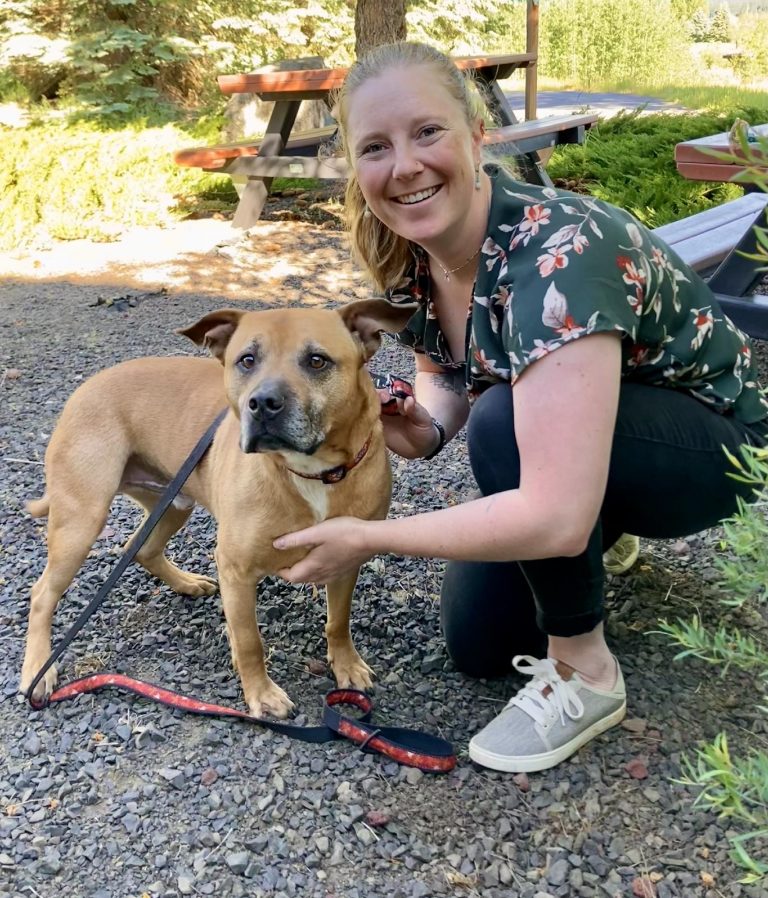MCPAWS sees spike in housing-related pet surrenders
BY DREW DODSON
The Star-News

Winnie’s story is unlike most others.
Winnie, a blue heeler mix, is among more than 900 dogs and cats that have been surrendered to the MCPAWS Animal Shelter in McCall in recent years, with more and more pets coming to the shelter each year due to rules on rental housing.
Winnie spent nearly a year bouncing between new homes interested in adopting him and the animal shelter, but this spring was re-adopted by her original owner.
“That’s the only one that comes to mind where they went back home,” MCPAWS Shelter Manager Ashley Colglazier said.
The reasons pets are surrendered to the animal shelter are broad and ranging, but Winnie and some 100 other cats and dogs have been brought to the shelter since 2020 due to a lack of available rental housing that allows pets.
“Winnie got dropped off at the shelter because her owner lost her housing, and she just didn’t have anywhere to go that was pet friendly,” Colglazier said.
Colgazier and MCPAWS Executive Director Cortney Bayuk see pet restrictive rental housing as one of the biggest challenges to keeping pets out of the shelter.
Economic hardship due to high housing costs and landlords not allowing pets in long-term rentals are the common culprits for each housing-related surrender the shelter sees.
This year the animal shelter has already seen 24 pet surrenders due to housing compared to 20 all of last year.
Surrendered pets usually stay at the animal shelter at 831 S. Third St. (Idaho 55) until they are adopted or moved to animal shelters in Boise for a better chance at being adopted.
That can take months or longer, however, as the same housing challenges that plague pet owners deter others from adopting at all.
“I just feel like because of housing, no one can adopt a dog,” Colglazier said, noting that adoptions are down 35% this year.
As a result, the shelter has watched the average length of stay for cats and dogs rise at a time when inflation has pushed the cost to shelter animals to about $37 per day, or 50% more than in 2021.
Home To Home
The shelter’s numbers do not factor surrenders that are facilitated by pet owners without the help of the shelter through a program called Home To Home.
“With our shelter being smaller than most shelters, we don’t have the space or the staff to take care of every surrender,” Colglazier said. “So, we’re asking the community to use Home To Home until we can get the space.”
Last year, the the program helped successfully re-homed 83 local pets. Another 30 pets have been re-homed on the website this year, though it is unclear how many are due to housing challenges.
The stories leading to housing-related surrenders are rarely anything less than heart-breaking.
Takota, a six-year-old Staffordshire bull terrier that has lived at the shelter since earlier this year, is among the 18 dogs surrendered to MCPAWS in 2024 due to housing.
Takota’s owner was left with a choice to find a new place to live or surrender Takota after the landlord of her rental unit discovered he was staying in the home against the terms of the lease.
“Takota’s story was really sad,” Colglazier said. “The owner was in tears and falling apart (when he was surrendered).”
Takota is a friendly dog who loves people, but he rarely gets a serious look from prospective adopters.
Size Limits
Bayuk believes that is at least in part due to pet size restrictions imposed by many landlords. For Takota, who weighs over 40 pounds, that is often a deal-breaker.
“I’ve looked for housing in the past, and it’ll say, ‘pet friendly,’ but then it’ll say, ‘up to 20 pounds,’” Bayuk said.
Meanwhile, smaller dogs with less friendly dispositions are routinely adopted from the shelter.
Zoey, a French bulldog pug mix that was recently surrendered, spent just three hours in the shelter before being adopted again, despite having a shy, nervous disposition.
“People in this area are always looking for smaller dogs,” Colglazier said.
Surrendered cats often have a similar experience, as the shelter has seen a recent trend of adult cat adoptions.
Regardless of breed, size, and disposition, Colglazier cannot help but note the irony that infants and small children are allowed in all rental homes while certain pets, like Takota, are not.
“When you look at a dog and you look at a two-year-old child, they do the same amount of damage, except a kid has opposable thumbs and can draw on the walls,” she said. “Takota is probably just going to lick the wall.”




